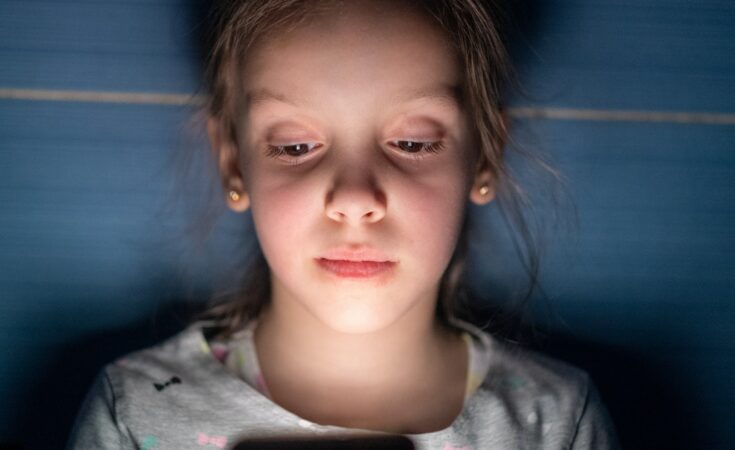Did you know that many parents in the tech industry, specifically those involved in social media, severely limit or outright ban their children from using the platforms that paid for the roof over their heads? Many industry insiders say that they want their children to interact with others IRL, which seems like reason enough to limit screen time. We get that.
What social media companies and their employees typically don’t touch on, however, is that they’ve known from the start how detrimental social media can be, especially for kiddos.
That’s why California lawmakers want to hold companies like Instagram and TikTok responsible for promoting their products to children fully knowing how damaging they could be to their mental health. Today, California Assemblymembers Jordan Cunningham and Buffy Wicks are introducing AB 2408, a bill that would hold social media companies legally liable for their addictive marketing tactics.
The bipartisan bill would be retroactive, meaning the companies would be at risk for individual and class action litigation by California’s Department of Justice not only moving forward, but also in the past.
Internal research at Facebook showed how damaging social media can be for kids, especially teenage girls. TikTok’s been slammed for its unclear privacy policies and data-sharing practices. Study after study has shown that kids addicted to TikTok generally experience higher levels of anxiety and depression, along with an impaired working memory.
“The types of harm we’re seeing out of the social media addiction epidemic that we’ve got going on with our teenagers, especially, is eating disorders, it’s depression and suicidal ideation,” Cunningham told Politico.
“It’s got both a mental health component and a physical health component. And I don’t know why all of us — society and the kids — have to pay the cost of that. It seems like that cost should be borne at least in part by the companies that profit from the behavior.”
The bill targets features like like push notifications and scarily on-point personalized algorithms to keep kids scrolling — not the content itself. This is important to note, as advocates of the bill expect pushback from Big Tech because of Section 230 of the U.S. Communications Decency Act, which essentially says publishing platforms are not liable for what individuals post on their platforms. This is an important federal protection, as without it, free speech on the internet as we know it wouldn’t exist.
But because lawmakers are targeting the marketing tactics as opposed to the social media platforms as a whole or the user-generated content on it, Cunningham feels that the bill won’t clash with federal law. And, with the knowledge that platforms like Facebook and Instagram were wildly aware of how addictive their platforms were, the assemblymember feels now is the time for the bill.
“I think this is as good a case as I can think of, outside maybe massive oil spills or Joe Camel pitching cigarettes to 15-year-olds, for retroactive application,” he said to Politico. “We’ll see whether my legislative colleagues agree with me — that remains to be seen.”



































